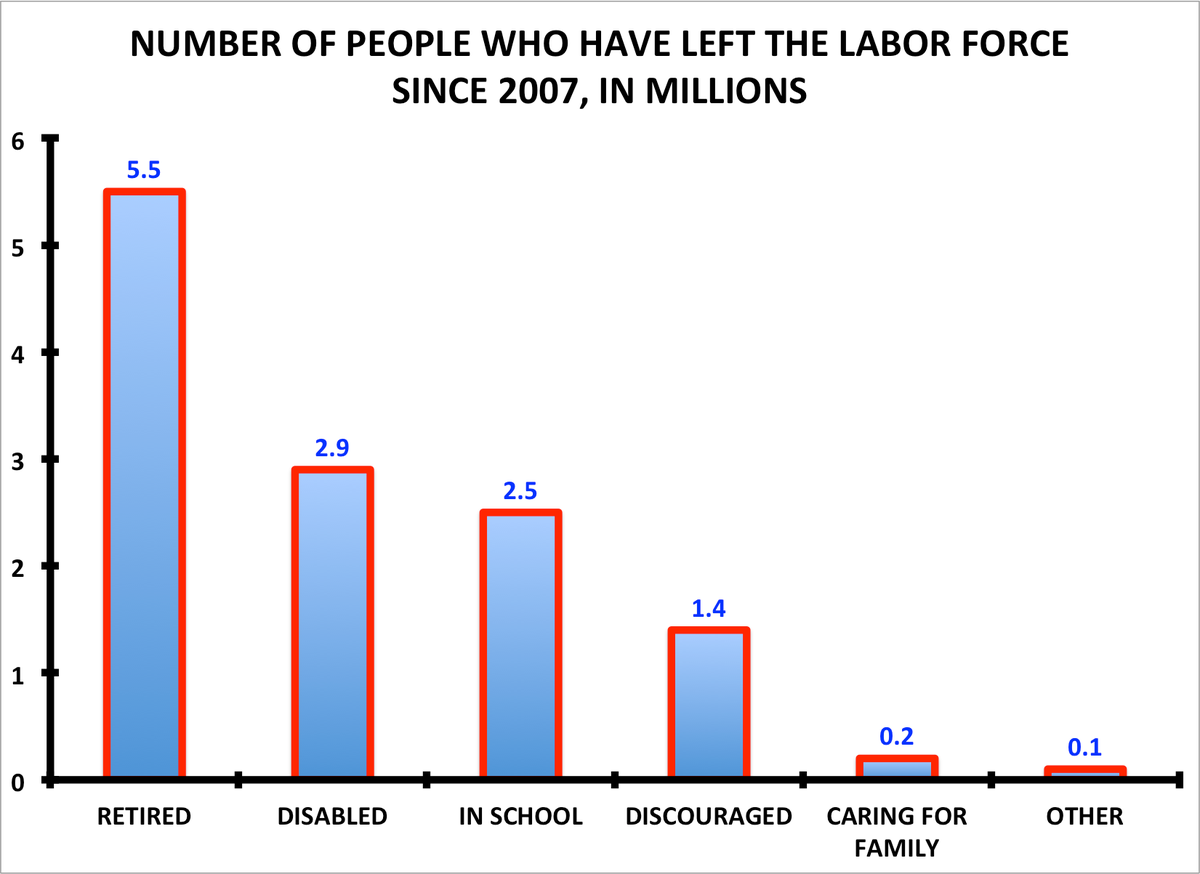- Joined
- Jan 2, 2006
- Messages
- 28,172
- Reaction score
- 14,267
- Location
- Boca
- Gender
- Male
- Political Leaning
- Independent
Reuters said:The number of Americans filing new claims for unemployment benefits fell to the lowest level in nearly 8-1/2 years last week, suggesting the labor market recovery was gaining traction.
Initial claims for state unemployment benefits declined 19,000 to a seasonally adjusted 284,000 for the week ended July 19, the Labor Department said on Thursday.
That was the lowest level since February 2006, and confounded economists' expectations for a rise to 308,000.
It looks as though labor markets are beginning to pick up a considerable amount of momentum. Persistent employment growth coupled with this sudden drop in new claims figures to set the stage for a reversal in real output growth. U.S. real GDP declined by 2.9 % in the first quarter of 2014, initially stoking fears of an impending recession. Yet that figure seems to be an outlier which can be attributable to a weakness in private inventory investment. Second quarter output data will be released this Wednesday (the 30th) and should shed a considerable amount of light on the U.S. economy.
The rest of the article can be found here.



